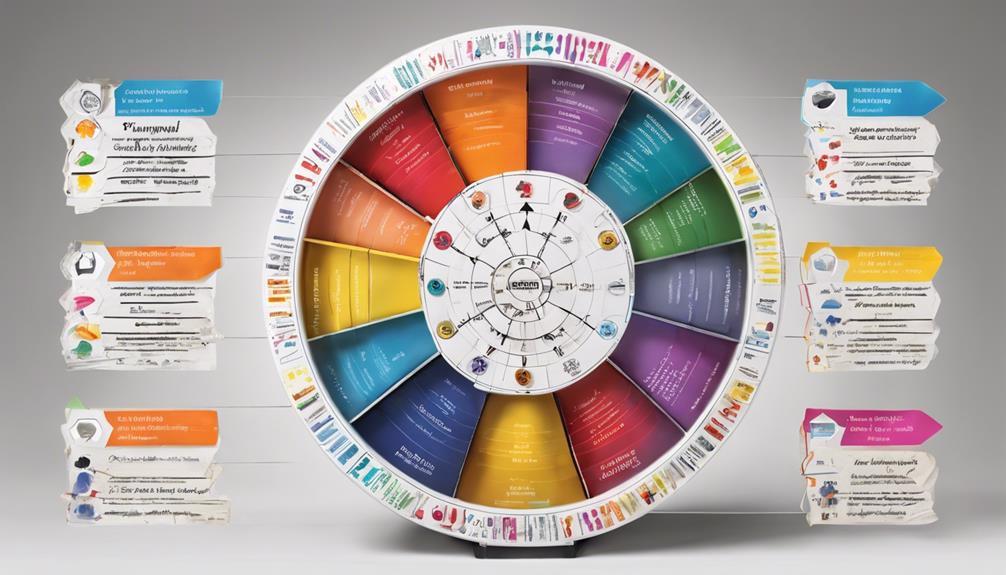Have you ever pondered whether narcissists really relish being alone?
It's a common assumption that individuals with narcissistic traits thrive on constant attention and validation from others. However, delving into their solitary tendencies might reveal a more complex relationship with being alone.
Let's explore the intriguing dynamics at play when narcissists find themselves in moments of solitude and what this can tell us about their inner world and coping mechanisms.
Key Takeaways
- Narcissists struggle with Alone Time due to fragile self-esteem and fear of inner insecurities.
- Solitude serves as a shield from external criticism and a source of narcissistic supply.
- Isolation reinforces self-centered behaviors, hindering empathy and emotional growth.
- Coping mechanisms in solitude may involve addictive behaviors and a reliance on external validation.
Understanding Narcissistic Solitude
Understanding Narcissistic Solitude reveals the intricate interplay between a narcissist's constant need for external validation and their struggle with spending time alone.
Narcissistic individuals, characterized by a grandiose sense of self-importance and a deep Need for Admiration, often find themselves uncomfortable in Alone Time. Their fragile self-esteem hinges on the attention and validation they receive from others, making them dislike spending too much time in solitude.
This aversion to being alone stems from a deep-rooted fear of facing their inner insecurities and vulnerabilities. To mask these feelings of inadequacy, narcissists may resort to manipulative behaviors to ensure they're constantly surrounded by individuals who provide them with the admiration they crave.
The inability to find solace in solitude highlights the intricate nature of a narcissistic personality, where the constant validation from others becomes a shield against the unsettling prospect of introspection and self-reflection.
The Relationship With Solitude

Exploring the dynamic between introverted narcissists and solitude reveals how they utilize seclusion to cultivate self-indulgence and shield themselves from external criticism. Solitude provides a space where introverted narcissists can engage in self-reflection, allowing them to maintain control over their environment and emotions. This relationship with solitude is complex and multifaceted, influenced by various factors such as their emotional state and preferences.
Key Points:
- Self-Reflection: Solitude offers introverted narcissists a chance to introspect and analyze their thoughts and behaviors, contributing to their self-awareness.
- Protective Bubble: For introverted narcissists, solitude acts as a shield, protecting them from external criticism and preserving their fragile self-image.
- Narcissistic Supply: In private settings, introverted narcissists may derive narcissistic supply from online interactions and personal achievements, feeding their need for validation within their controlled environment.
This intricate relationship with solitude highlights how introverted narcissists strategically use seclusion to manage their emotional well-being and uphold their desired self-image.
Impact on Well-being
Solitary tendencies in narcissists significantly impact their overall well-being, exacerbating self-centered behaviors and diminishing empathy. When narcissists spend time alone, their focus often intensifies on fulfilling their own needs and desires, neglecting the feelings and well-being of those around them. This self-absorption can further fuel their manipulative tendencies and insatiable need for external validation.
The isolation that comes with solitary tendencies can hinder narcissists' emotional growth, preventing them from developing the empathy necessary for forming genuine connections with others. Instead of using alone time for introspection and personal development, narcissists may use it to reinforce their sense of superiority and entitlement, distancing themselves from the vulnerability and reciprocity required for meaningful relationships.
In essence, the solitude sought by narcissists can perpetuate a cycle of self-centeredness and detachment from the emotional needs of those around them, ultimately impacting their overall well-being negatively.
Coping Mechanisms

The challenges faced by narcissists in coping with solitude often lead to the adoption of maladaptive behaviors as a means of managing distress. When left alone, narcissists may struggle with their feelings, resorting to unhealthy coping mechanisms to avoid introspection and control their emotions. Here are three key points to consider:
- Addictive Tendencies: Narcissists may turn to addictive behaviors when alone to distract themselves from their inner turmoil, contributing to a higher comorbidity between narcissism and addictive tendencies.
- Fear and Sadness: Solitude can amplify feelings of fear and sadness for narcissists, leading to difficulties in sitting with these emotions and driving them to seek external validation and control.
- Avoidance of Introspection: Instead of using solitude for self-reflection and growth, narcissists often engage in maladaptive behaviors to escape their distress, hindering their personal development and perpetuating a cycle of emotional avoidance.
Understanding these coping mechanisms can shed light on the complexities of narcissistic behavior when faced with solitude.
Psychological Insights
Psychological research reveals intricate patterns in the behavior of narcissists when confronted with solitude, shedding light on the underlying complexities of their psychological makeup. Individuals with Narcissistic Personality Disorder often exhibit a profound need for validation and crave attention from others to maintain their self-image.
When left alone, they experience discomfort stemming from their fear of insecurities and vulnerabilities. Solitude can magnify feelings of inadequacy and hollowness, as narcissists struggle with relying solely on themselves for validation. The external validation they usually seek becomes unavailable in moments of solitude, leading to a sense of unease and dissatisfaction.
This reliance on external sources for reassurance highlights their ongoing struggle with spending time alone. Understanding these psychological insights can provide valuable perspectives for supporting individuals with Narcissistic Personality Disorder in managing their emotions and fostering healthier coping mechanisms.
Frequently Asked Questions
Do Narcissists Travel Alone?
We've observed that narcissists often opt for solo travel to assert their independence and avoid conflicts. Traveling alone allows them to focus on their desires exclusively. It showcases their self-sufficiency and control.
What Happens When a Narcissist Is Alone for Too Long?
Alone for too long, we may witness heightened insecurity and manipulative behaviors in narcissists. Their fear of feeling ordinary drives a relentless quest for external validation. Solitude for them can trigger a tumultuous internal struggle.
Do Narcissists Socially Isolate Themselves?
We find that narcissists often seek social interaction to bolster their self-esteem. Their reliance on external validation leads them to avoid social isolation. Introspection can trigger discomfort, motivating narcissists to maintain connections for validation.
Are Narcissists Lonely People?
We discovered that narcissists, though seemingly confident, often struggle with loneliness. Their constant need for external validation and fear of facing vulnerabilities lead them to avoid solitude. Understanding their complex relationship with loneliness sheds light on their behavior.
Conclusion
In conclusion, while narcissists may struggle with spending time alone due to their need for external validation, some introverted narcissists may actually enjoy solitude as a means of self-indulgence and control.
Interestingly, studies show that approximately 40% of narcissists exhibit introverted tendencies, highlighting the complexity of their relationship with solitude.
Understanding these nuances can provide insights into the coping mechanisms and behaviors of individuals with narcissistic traits.









